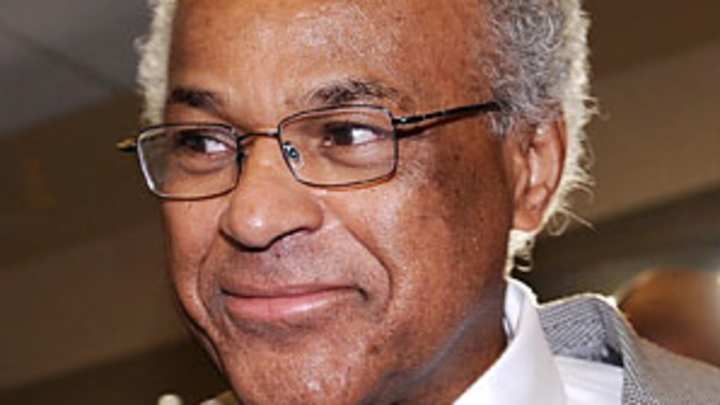Plenty of blame to go around in NBA's failed labor negotiations

But instead of looking forward to the start of a 72-game season, we're left with this: a group of NBA players, who felt not only defeated but also disrespected in this two-year process, taking the drastic move of disclaiming interest in their union on Monday. Their move takes the fight to the wrong kind of court and puts the 2011-12 season in serious peril.
They heard the endless ultimatums from commissioner David Stern that almost always came with condescending tones, the latest being a promise of a drastically worse "reset" offer if the current proposal was declined. Those players with the most power -- from union president Derek Fisher to the eight other members of the executive committee -- bristled when they studied the specifics of a deal. They saw the rules relating to the proposed luxury tax as an attempt to sneak a hard cap into their house. They fumed at the D-League idea in which players' contracts could be circumvented. And while that clause was not in the formal proposal, it showed once again how tone deaf the owners must be and was seen as the latest middle finger from the league.
These are professional athletes whose egos and pride came into play here. And the hard-line owners either didn't recognize that or didn't care. They pushed too hard against a group that was on its heels from the start and failed to protect the spirit of partnership that could have been the key to a deal being done. They ignored the realities of these negotiations, their senselessness intentional and their end game taking precedence over all the rest.
And that's why this is so dangerous for the players, why it's so likely to turn into a prolonged death march and forever change the bank accounts and careers of their masses. Blame Stern for the tone of the talks, but he wasn't lying about the devil-may-care attitude so many of his constituents continue to privately exude.
I would be shocked if the owners blink here, perhaps by calling the players' new lawyer, David Boies, to sweeten the proposal and put an end to this madness. The owners will keep the gas on no matter how much damage they do -- not just to the players and the game, but to the cities with publicly funded arenas that depend on the revenue and the workers who silently suffer in these already tough times. And whether it's months or perhaps even years down the road, the players who will have paid the price will need to lick their wounds and have an overhaul of their own.
Their system within this system -- the soon-to-be-defunct NBPA, intended to fairly represent some 420 players -- clearly failed them. The union's inefficiencies, the internal dysfunction on display and the inability of players to mobilize in an organized fashion helped doom this latest deal. That was embarrassingly evident in the days leading up to Monday's decision. Union officials declined to share this proposal, deemed the league's last and best, with the players who deserved a right to vote.
Three days came and went without any widespread communication between the union and its players, with the offer finally being leaked to USA Today on Sunday and later published by the league as part of its 11th-hour push to get it approved. With the 30 player representatives holding the only hope of word being spread from the top to the bottom of the workforce, sources consistently painted a pathetic picture of that key crowd.
Many reps weren't calling their teammates, weren't taking the time to understand the nuances of the $2 billion they still had an opportunity to have. Even on Monday, the most significant day of negotiations since the lockout began, there were no representatives from Portland, Utah or Sacramento in attendance.
Hunter is on the hook for that. Especially in light of his often-contentious relationships with agents who consistently questioned his leadership -- an ongoing practice since he took over in 1996, causing him to become increasingly distant and dismissive of that group -- you'd think he would have been more adamant about empowering and educating the players. But he chose the reactionary path of solitude -- first with the owners during those first few months of negotiations, and later with the very agents he seems to despise.
In the days leading up to the decision to disclaim interest, sources said Hunter routinely received information from the group of seven agents who had been pushing for decertification from the start. He wanted a head count on how many players wanted that so-called nuclear option (roughly 130 were required and more than 200 were believed to be on board) and clearly took that threat into serious consideration before deciding to disclaim. While a decertification vote would have taken between 45 and 60 days, the disclaimer route almost instantly dissolves the union and allows players to file an antitrust suit against the league much sooner. Sources told SI.com on Saturday that the move looked likely, and a unanimous vote on Monday sealed this terrible deal.
There's blame all around, and plenty of time to tell these tales.
